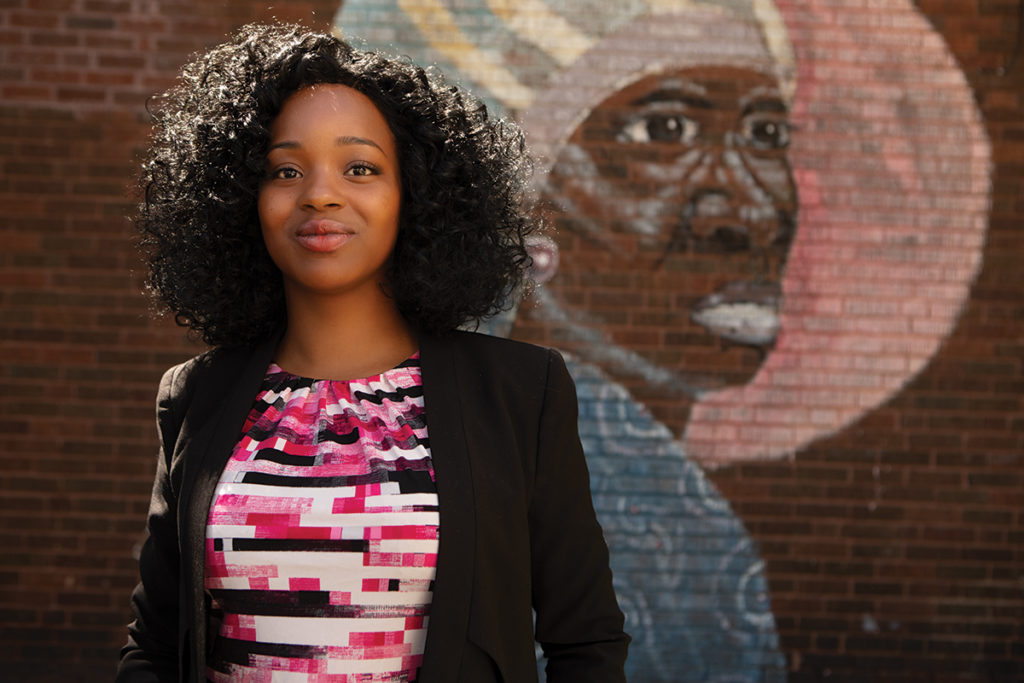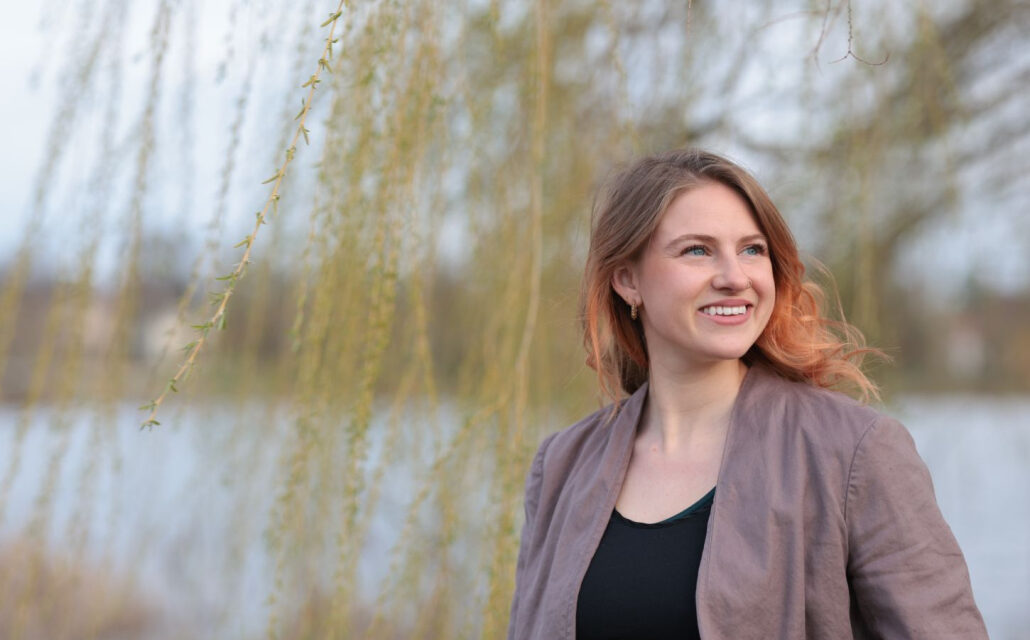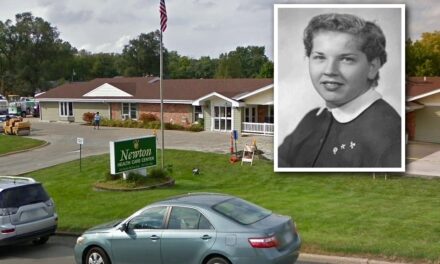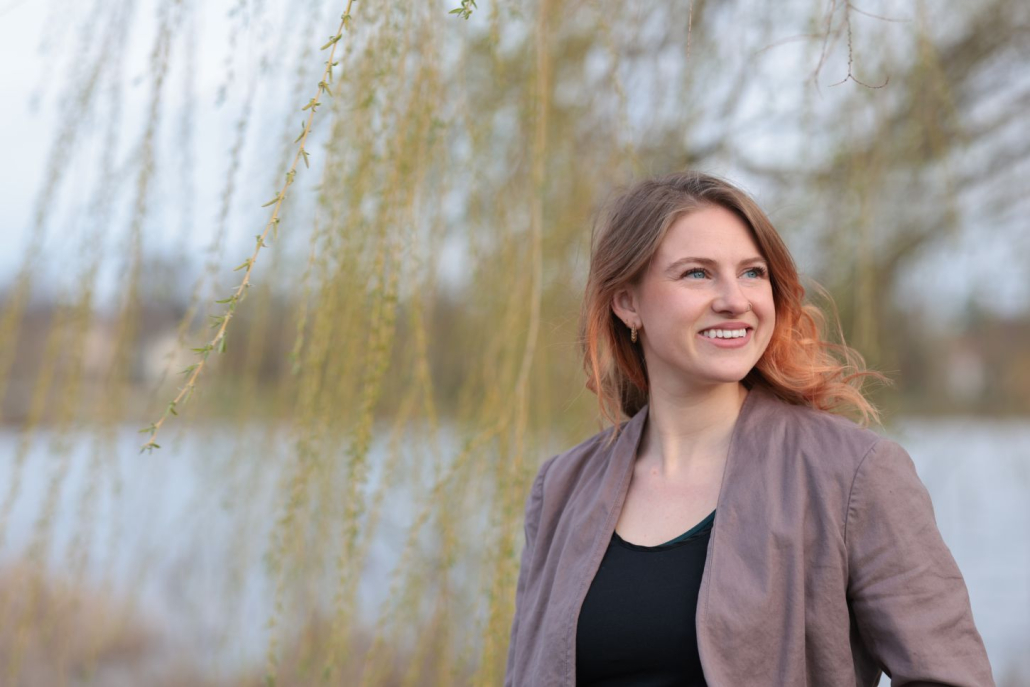
Katie Cashman is running for Ward 7, Minneapolis City Council
Katie Cashman, 30, knows that some people perceive her as “too young” to be a Minneapolis City Council candidate this year, running in Ward 7 against two older men. Yet she knows she has the background and maturity that is needed in political leadership.
As a teenager she decided to apply for college at McGill University in Canada because it cost only $9,000 per year. She earned a master’s degree in Germany. She worked for the United Nations, based in Nairobi, Kenya, for three years, working with global cities on issues such as urban growth, transportation, housing, human rights, health care, environmental justice, and gender issues.
“I learned a lot about what is possible in Minneapolis through experiences living in other cities,” Cashman says. “While I was in Nairobi from 2016 to 2019, I started a nonprofit and learned what it is like to build something from the ground up when there’s no template for it. We raised $30,000 there to build a community center in a local neighborhood that was very destitute — 50 people sharing one bathroom. The community center was built by local workforce and designed by local community.”
After that Cashman says, she started a global climate action program that generated millions of dollars to fund climate education. “We started outreach in Colombia, Chile, Germany, and in the U.S. — making sure that schools and teachers have climate change education, resources, and training in order to teach young people how they can tackle this existential crisis and not feel so much despair. That’s another accomplishment I am proud of.”
As a renter who works full-time, in a district with a high percentage of disenfranchised renters, she says another challenge is “getting renters to understand how many important decisions the city council makes and how important their voices are in that conversation.” She knows that home owners tend to be the voters in her area — of 32,000 voters in the ward in 2021, only 10,000 voted — and estimates that she has door knocked to more than 15,000 people so far. “It really matters who the management and owners of these properties are,” Cashman adds. “Even though it is state law that you’re allowed to be able to come into the building, every day we face barriers to canvas rental buildings.”

Saura Jost and family
Saura Jost is running for Ward 3 in Saint Paul. As a Central High School student two decades ago, she worked on political campaigns for people including Amy Klobuchar and Chris Coleman, and was social justice chair for the local National Honor Society, but did not see politics in her future because she didn’t see many people in it “that looked like me. I perceived politicians as being primarily white men who had inheritance funds.”
As a woman of color working in engineering, she is accustomed to being a rare face in a science field. The work has helped her notice how vital the built environment and infrastructure is to community, as well as the need to “make sure that it is equitable. We know there are areas that are not as well served in terms of the condition of their buildings, or the roads, or air quality, or access to clean water. The industry I work in is slowly coming around to this idea of our impact on society.”
As an advocate at the state legislature for the American Council of Engineering Companies, and a new mother, she evaluated her priorities and realized she wanted to make a greater impact on her community — but worried whether people would accept someone who comes out of an engineering career. Yet women encouraged her to run, saying she did not need a degree in political science and that “you know all the things that you need.”
Being a candidate with a young child is difficult, Jost acknowledges. “My son just turned five, so we finished paying for daycare a few months ago. It really made an impact on when I was going to run for office. Since Saint Paul council members only receive part-time pay, it affects our family’s finances.”
Civil engineers, she says, “design our built environments — all of the basic infrastructure. That motivated me to want to run for office. There is so much we need to do when it comes to things like our roads, bridges, and buildings; making sure they are sustainable and that they really serve everyone in our community.”
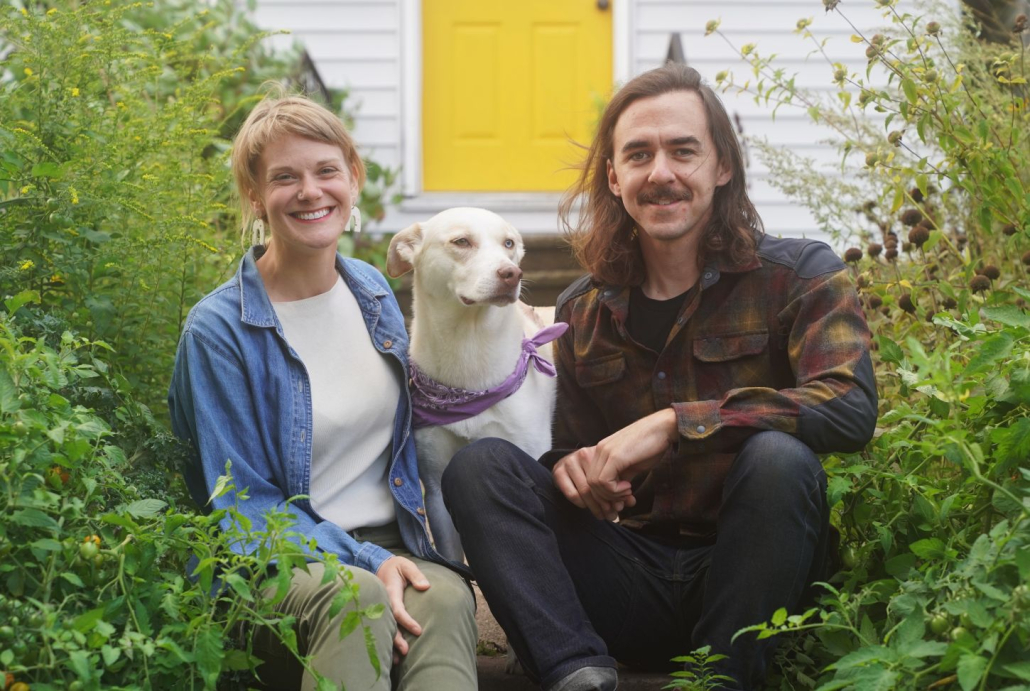
Jenna Yeakle, pictured with partner Chris and dog Mags
Jenna Yeakle is running for one of two open at-large city council seats in Duluth (as is Miranda Pacheco). With a master’s degree in public health, she has worked 12 years in the nonprofit sector, especially in “getting to the root causes of the myriad issues that our community members face. I’ve worked in education and human services advocacy, food security, reading literacy, youth development, elder care, public safety, local economic development. Through our federal and state government funds, the City of Duluth will have so many amazing opportunities to increase affordability of housing across the board and to invest in our shared infrastructure: our streets, parks and public spaces, libraries, and to commit to good community development projects that will help us actually build community.”
As an organizer, she says, “my paid job is to break down barriers between people, their elected officials, and the public decision-making process — — that leadership sharing is good governance. We don’t always see that at the local level. When folks have the resources, information, and access to decision makers, that’s when we can have real community-centered change.”
As a first-time home owner, with “a crushing amount of student loan debt,” she and her partner still live paycheck to paycheck, largely running her campaign out of “an extremely unreliable car” and a “very cluttered dining room table.” She says the cultural dichotomy is daunting between her as a candidate “in jeans and a sweatshirt” and people who have established connections with trades labor, commerce, and current elected officials.
“Since day one, we’ve been reaching out with a desire to build relationships, seeking contacts to get that endorsement, navigating the political power that doesn’t want the working class to success, figuring out how to make that financial ask,” Yeakle says. “Campaigning has been a learning curve for me in trying to build those bridges that don’t yet exist. That’s emotional labor. ”
Anika Bowie is running for Ward 1 on the Saint Paul city council. Her community-based work started at a “little girl stocking groceries and guarding the candy in the story my parents owned right in the heart of my Rondo neighborhood.” Her aunt owned a social club. An uncle owned an ice cream shop. Her first paid job was at age 14 “teaching ABCs to people who are taller than me now.”
In addition to being centered in community, she also grew up knowing adversity. “I went through depression, insecurity. My dad was incarcerated at a time when I couldn’t even fathom what that meant. Dealing with that shame, not knowing where I was going to live, seeing my mom having to raise kids by herself,” Bowie says. “It started me questioning why we have no safety net for people. Instead of being innovative and creative to find solutions, we just punish. I had conscious rage at that time. Then I read Angela Davis and just took off — I had my activist bag packed.”
She worked on dismantling the school-to-prison pipeline “and I realized that the only way I can truly disrupt a system is to learn about the rules of the game. How it was designed, who the decision makers are, and being in the space to transform it.”
At Hamline University she became president of the Hip Hop Collective — a social justice coalition of artists, academics, and activists used “as a tool to empower young people, who felt their own identity was dehumanized. The collective was designed to not only increase literacy rates as schools and juvenile centers, but to reinvigorate young people around their own culture.
After she graduated, right after a recession, “things got real. I knew I didn’t want to be a cop. I did not want to take on another set of debt going to law school. I did not want to go back to my bedroom in Rondo. So I flew to Oakland and taught inside schools, where I saw the strength of restorative justice.”
When she returned to Saint Paul, “I saw that my community was still in crisis. A lot of people were falling into the cracks. People had lost hope. I reconnected with a teacher from Central High School who helped young people in foster care transition into adulthood. I supported her foundation and learned how to write grants and create organizational power. I saw how people’s stories literally drives the social equity that we are building here. That’s when I realized my resources as a young person are valuable — how I was able to navigate in my own capacity on my own. It doesn’t always take a march or a big rally to help people get their day to day figured out. That’s what I love about city council. It’s the small things that matter.”
Related Stories



